Generative AI and E-commerce Automation: Streamlining Operations and Reducing Costs
Discover how Gen AI driven ecommerce automation, can help in alleviating operational efficiency and business profitability.
7/28/2025
artificial intelligence
8 mins
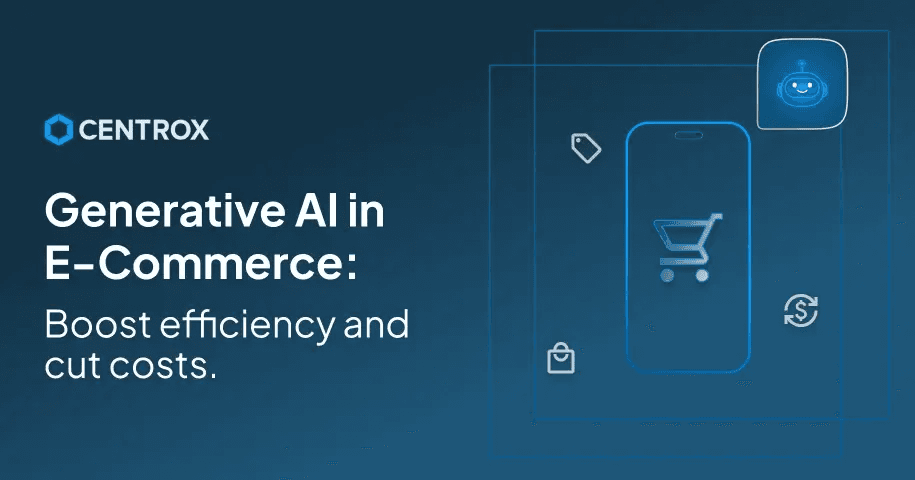
The technology revolution in recent years has been very revolutionary. Where earlier people were debating about having an e-commerce store alongside the onsite shop, today the world has advanced further to even automate this online shop by integrating generative AI in an e-commerce platform for making business operations more convenient and fast-paced.
So, the discussion today has definitely evolved from thinking about having an e-commerce platform to exploring how generative AI in e-commerce can contribute to boosting business efficiency, for reducing effort and cost, alongside making the process time efficient.
With our blog, we will help you explore how generative AI in e-commerce can help in introducing automation that streamlines businesses' daily responsibilities, reduces costs, and ultimately helps in driving more profitability.
Gen AI in E-commerce Automation
Integration of Generative AI in e-commerce automation refers to utilizing advanced AI models and algorithms for executing tasks, processes, or workflows without human intervention. With generative AI, we can have more intelligent, adaptive, and customer-focused e-commerce automation that can help you stay ahead in this competitive market.
Why is Gen AI needed for E-commerce solutions?
The fast-paced advancements all around the world have created urgency for efficient solutions that can handle more customers while consuming less time and resources. Although e-commerce stores were a big step toward introducing convenience and enhancing accessibility, but with changing dynamics, we need a more intelligent automated solution that can handle most of the process autonomously.
The Gen AI implementation in e-commerce allows automated content generation, customer support, sentiment analysis and personalized product suggestion, inventory and supply chain forecasting, price optimization, and most importantly, risk detection. Performing these tasks manually requires time and effort, but a Gen AI smartly carries the responsibility of these and allows the user to execute them with a few clicks. So, if we understand the potential of AI in the words of Sundar Pichai(CEO of Alphabet and Google), he says:
“AI is probably the most important thing humanity has ever worked on. I think of it as something more profound than electricity or fire.”
This quote relates AI with fire or electricity, which indicates that it has the potential to widespread rapidly, but with responsible use and development, we can introduce meaningful, smarter, and safer innovations.
E-commerce Applications Automated by Gen AI
Business owners today are looking for a solution that provides more value while consuming fewer resources. Generative AI algorithms have emerged here as a saviour that can handle multiple e-commerce processes and tasks intelligently and with much fewer resources. Below, we have mentioned a few e-commerce processes that generative AI can automate:
1. Product Content Generation
- Use Case: Generative AI models can be used in E-commerce platforms for auto generating product titles, descriptions, specifications, and category tags, reducing the redundant effort of writing long content.
- How It Works: For applications like this product, content generation from large language models (LLMs) trained on massive e-commerce, marketing, and SEO datasets can help in generating contextually relevant and brand-aligned product content from short prompts or keywords.
- Impact: This significantly reduces manual workload, alongside speeding up product onboarding, while keeping listings SEO-optimized.
- Industry Application: copy.ai
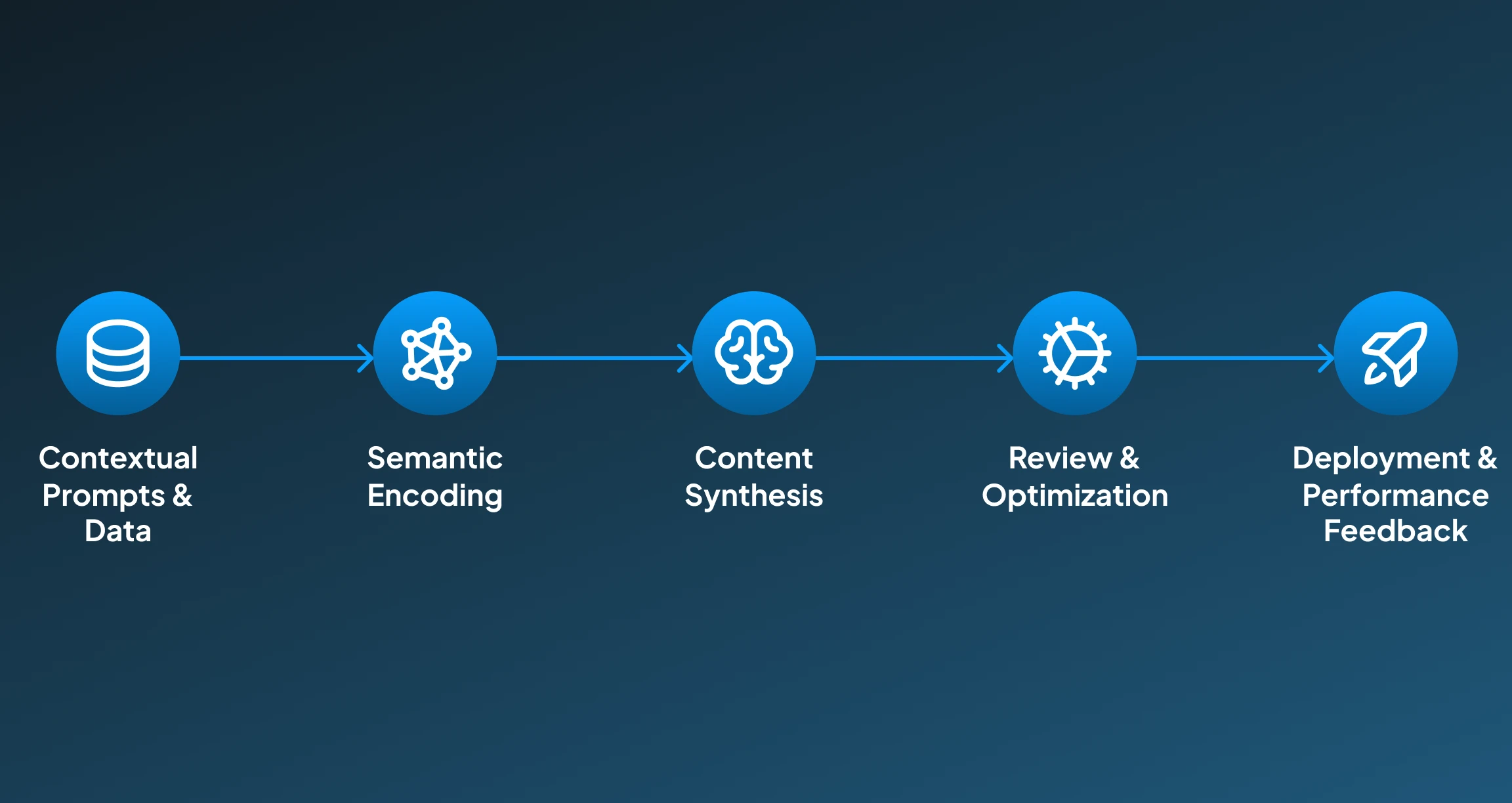
2. Customer Support & Chatbots
- Use Case: A generative AI model can also handle common customer queries, order tracking, returns, and product suggestions through AI chat, and work as a reliable customer support agent that doesn't get tired.
- How It Works: Here, a generative AI model fine-tuned on customer service data can understand user intent, eventually generate human-like responses, and handle complex queries across different channels.
- Impact: This application can provide 24/7 personalized support, reduce resolution time, and lower operational costs.
- Industry Application: Zendesk AI
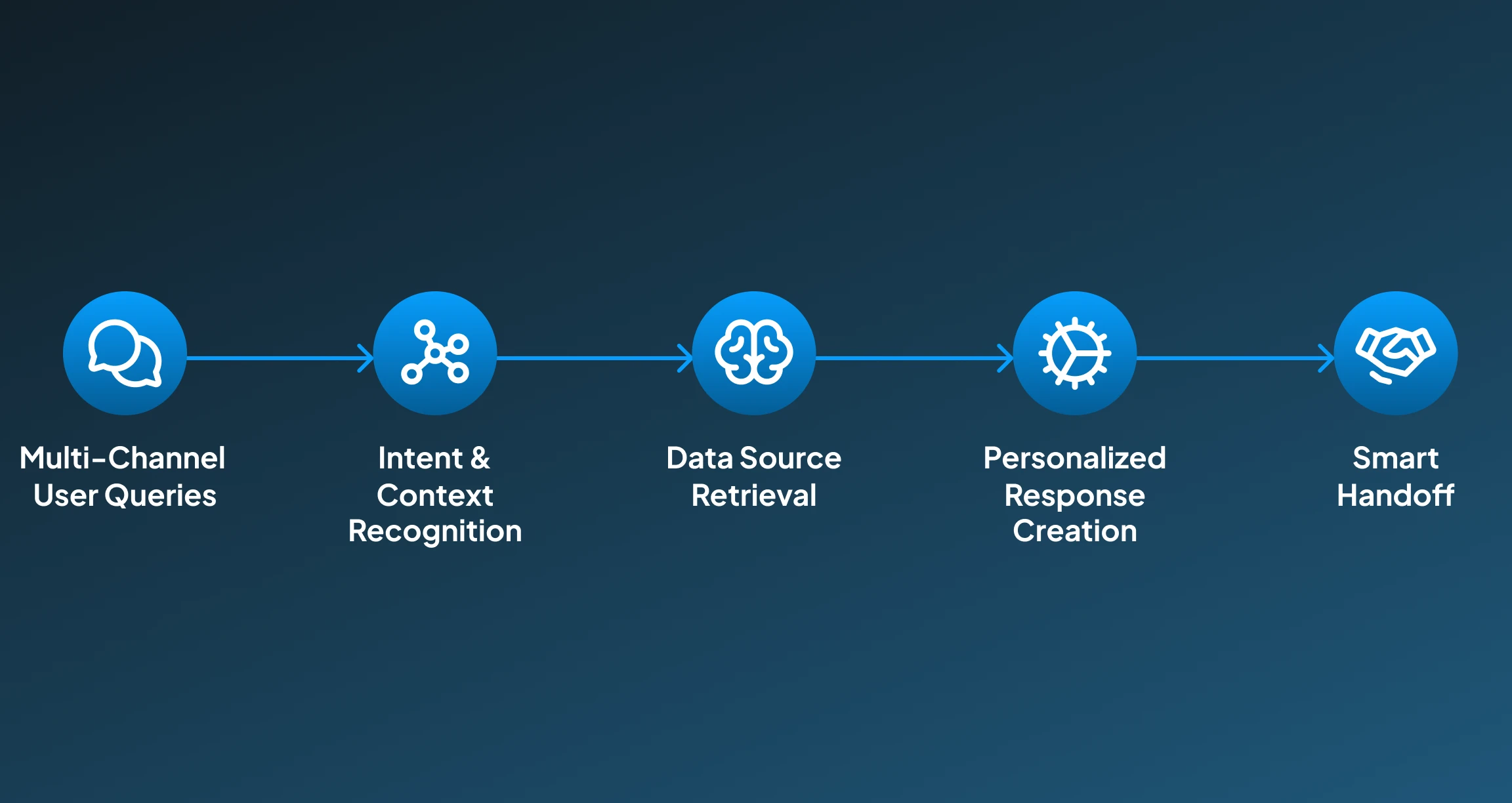
3. Product Recommendations
- Use Case: With generative AI integration in e-commerce, we can have an automated approach for recommending products to user by understanding their browsing history, purchases, and behavior.
- How It Works: For such an application generative AI algorithm combines collaborative filtering with deep learning and content analysis to generate personalized product suggestions in real time.
- Impact: This contributes to boosting cart value, enhancing customer engagement, and ultimately drives repeat purchases.
- Industry Application: Amazon Personalize
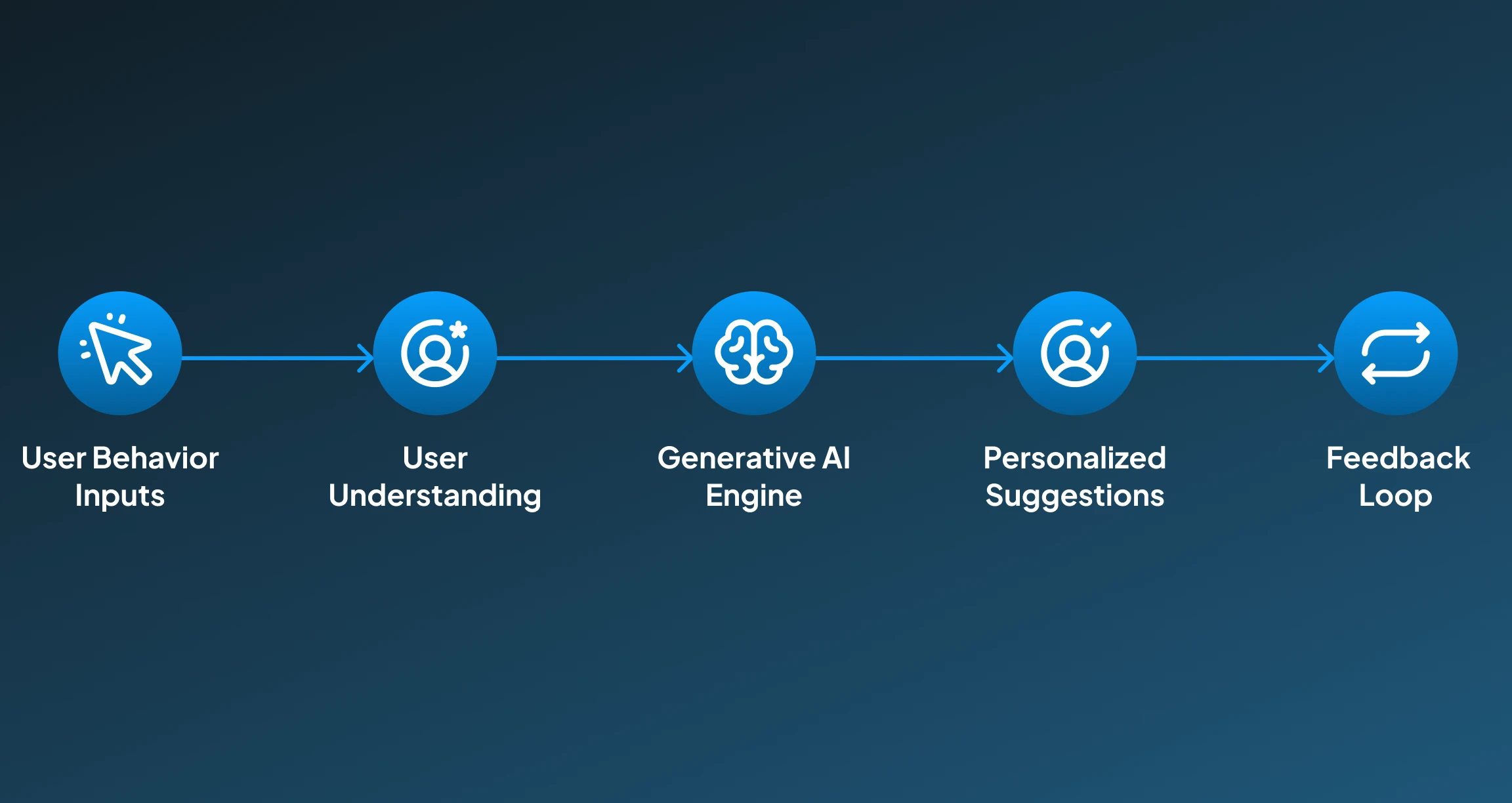
4. Dynamic Pricing Optimization
- Use Case: Price can be a competitive point for any product that can help you stay ahead in the market. Performing price analysis conventionally is tough and time-consuming. However, with a generative AI-driven solution, we can have an approach to automatically adjust product pricing based on market conditions and customer data.
- How It Works: AI models analyze competitor pricing, demand trends, and customer profiles to recommend or apply real-time price changes using reinforcement learning.
- Impact: By improving profit margins, competitiveness, and responsiveness to market dynamics, it can help you adjust prices in an optimized manner, which can drive more profit.
- Industry Application:Pricemoov
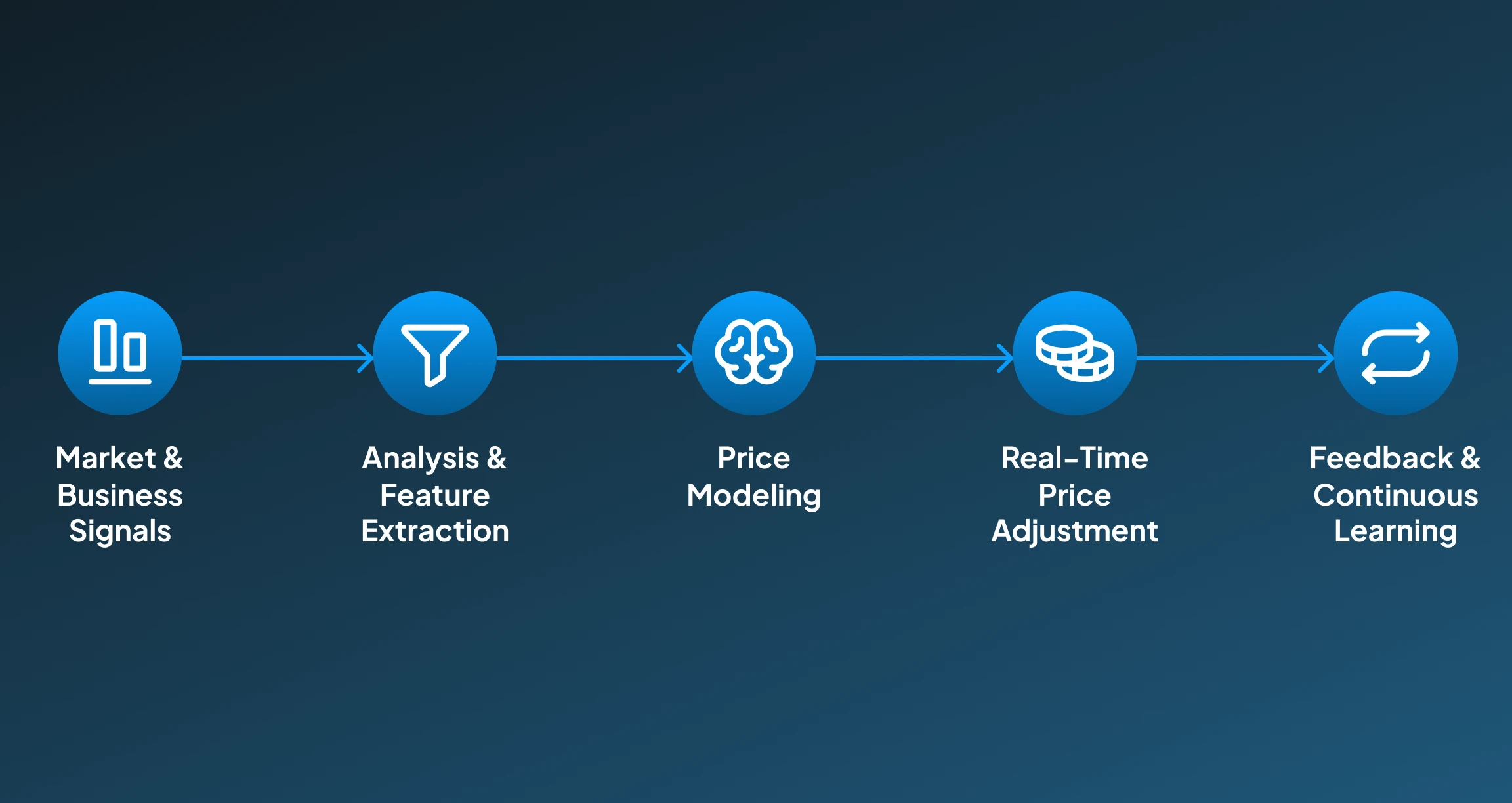
5. Review & Sentiment Analysis
- Use Case: Understanding customers' behavioural patterns by analyzing customer reviews and social mentions enables the e-commerce platform owners to build product perception and satisfaction.
- How It Works: Gen AI models use natural language understanding (NLU) and sentiment classification to identify the emotions, trends, and recurring issue patterns in customer feedback.
- Impact: Such a sentiment analysis solution contributes to enhancing product development, improving customer satisfaction, and supporting reputation management.
- Industry Application: MonkeyLearn
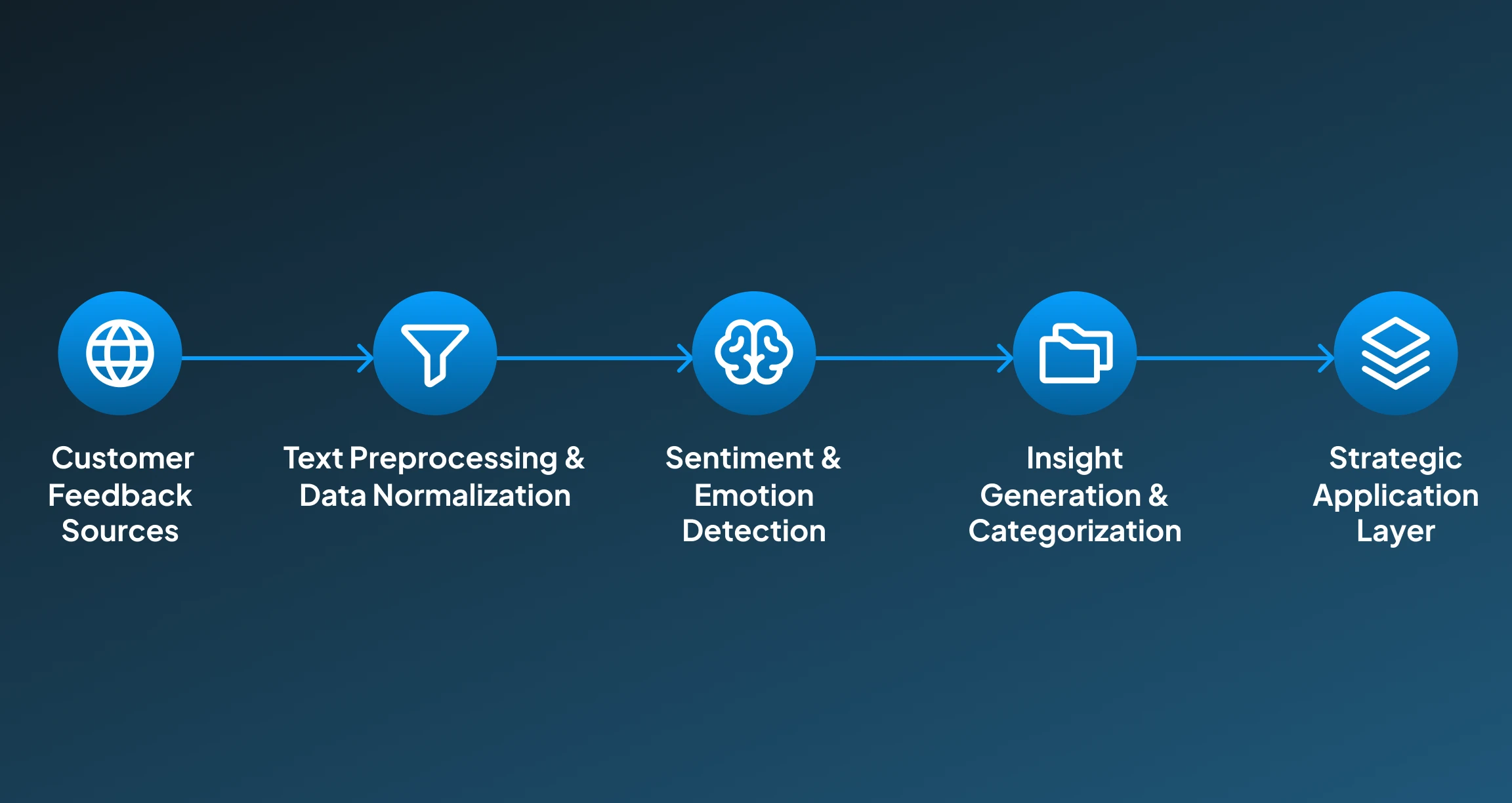
Benefits of Gen AI in E-commerce
While e-commerce is on its way towards futuristic revolutions, here, the integration of generative AI-driven advancements has emerged as a smarter alternative for transitional practices. So, with gen AI in e-commerce solutions, businesses are not just automating routine workflows, but they are opening doors for efficient, intelligent, and personalized buyer journeys, driving more sales and profits. Here are some of the key benefits Gen AI brings to e-commerce automation:
1. Reduced Operational Costs
Integration of such a generative AI solution can result in eliminating the need for having large manual teams for handling daily redundant tasks, which helps in reducing the overall operational cost.
2. Faster Time-to-Market
By having a generative AI-driven content generation tool, we can have a faster and more optimized approach for writing product-centric content, making marketing more targeted and streamlined.
3. Hyper-Personalized Customer Experience
AI models have the ability to understand the complex patterns of human behavior, preferences, and sentiments. This helps in crafting marketing campaigns, particularly emails, offers, and product descriptions that boost engagement.
4. Smarter Decision-Making with Real-Time Insights
With its ability to build understanding on complex data patterns, it analyzes feedback, sales trends, or inventory movement to contribute actionable insights for enhancing decision-making.
5. Improved Risk Detection & Fraud Prevention
With built-in anomaly detection and pattern recognition, Gen AI helps identify suspicious behavior and fraudulent activity early, protecting both businesses and customers from potential losses.
Limitations of Gen AI in E-commerce
Although there is no doubt that generative AI is bringing in numerous advantages, but it also comes with some challenges. It's critical for businesses to be aware of these limitations so that they can plan and implement safer and smarter solutions. Below are some limitations that are important for you to consider before implementing your AI solution:
1. Accuracy and Quality Control
The content generated from the AI tool might sometimes have AI-generated content may factual errors, outdated information, or misrepresentations that require human review.
2. Lack of Contextual Understanding
Although AI has become very advanced, sometimes these generative AI models do struggle to understand the targeted context that contributes to irrelevant or off-brand outputs.
3. Data Privacy and Security Concerns
While ensuring performance and quality, it's extremely important to ensure secure customer interaction and data handling to maintain the reliability of the tool.
4. Dependence on High-Quality Data
The performance and quality of outputs of Gen AI mainly depend on the quality and volume of training data the particular tool has been trained. A poor data input results in a poor AI output.
5. Ethical and Bias Issues
AI models can unintentionally reinforce stereotypes or generate biased content based on the data they were trained on.
What should be the decision of your Business?
Generative AI integration in e-commerce isn't just all about automating tasks, but it's significantly enhancing the decision-making too. But the smarter approach for small businesses to exercise their fullest potential would be by initially identifying the most time-consuming manual processes in their workflows and implementing them for that specific use case. This will help them in having a good start without being burdened by the cost of it.
Implementing Gen AI tools for automating content creation, customer support, and inventory forecasting can deliver immediate efficiency gains and enhanced performance. But at the same time, it's critical to maintain human oversight, to ensure data quality, and address ethical considerations.
By starting small, testing AI in one or two particular areas, and scaling responsibly, e-commerce teams can build a future-ready strategy that balances innovation with trust, performance, and customer-centricity.
Is your traditional e-commerce process holding back your business growth? Discuss with our AI experts at Centrox AI to evaluate your current operations. We'll tailor an intelligent solution designed to match your unique needs and unlock scalable growth

Muhammad Haris Bin Naeem
Muhammad Harris Bin Naeem, CEO and Co-Founder of Centrox AI, is a visionary in AI and ML. With over 30+ scalable solutions he combines technical expertise and user-centric design to deliver impactful, innovative AI-driven advancements.
Do you have an AI idea? Let's Discover the Possibilities Together. From Idea to Innovation; Bring Your AI solution to Life with Us!
Your AI Dream, Our Mission
Partner with Us to Bridge the Gap Between Innovation and Reality.
